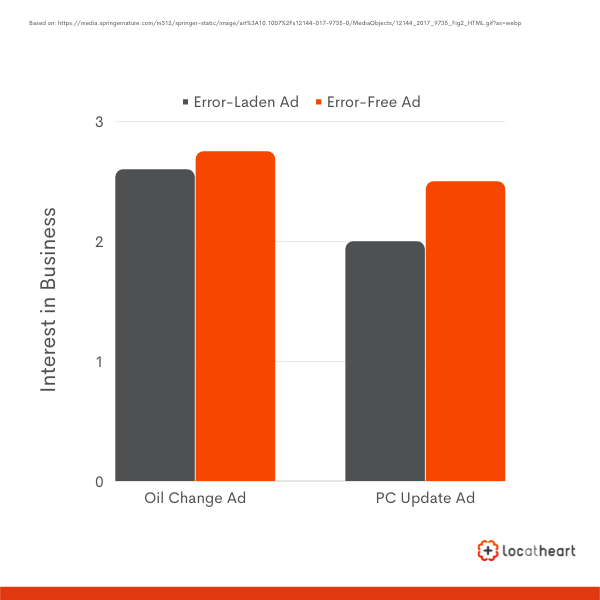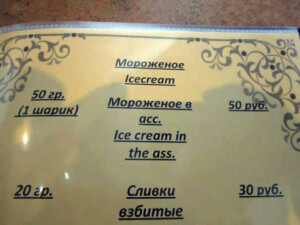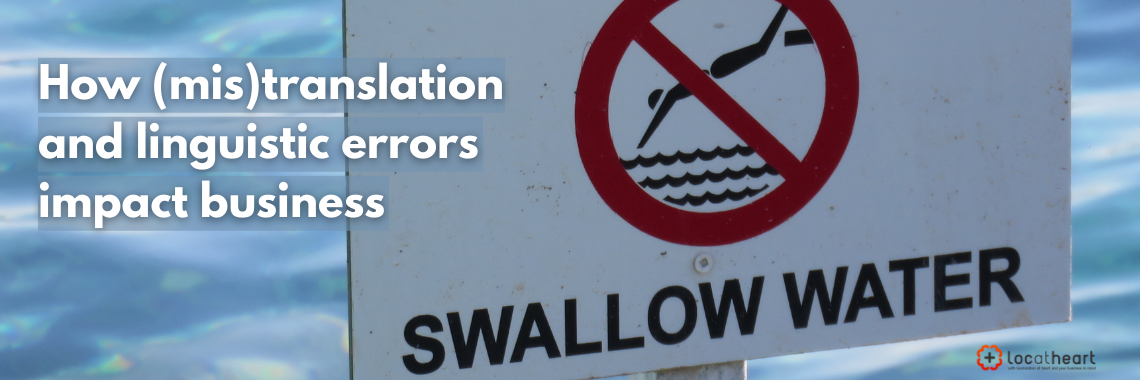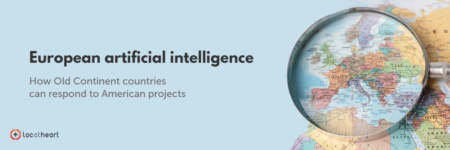Cannibals, typos and e-commerce – how (mis)translation and linguistic errors can impact business
Imagine a scene – a restaurant belonging to a well-known chain specialising in chicken treats and dinners. Inside – a room full of happy Chinese customers. An iconic image of a smiling, grey-bearded colonel adorns one of the walls. But this time, there is something sinister behind his smile. Upon a closer look, it becomes obvious that the customers are eating their own fingers.
Blood drips from their hands but they don’t seem to care. Through a big window, one can see a Mercedes rushing by. The driver speeds along the street with a morbid look on his face. The car is gaining momentum. Further along, the street ends at a busy junction. A single drop of sweat flows down the driver’s forehead. He steps harder on the gas pedal. High above, a passenger jet is graciously gliding across the cloudy sky, carrying the travellers to their destination. The atmosphere inside is calm and relaxed, and people seem to be enjoying themselves. The one major thing that makes this flight quite unusual, though, is that all the passengers are stark naked. It’s all a bit surreal, isn’t it? Welcome to the bizarre world of mistranslations and linguistic errors.
These are not the words you are looking for
The above picturesque rendering, even if a bit gruesome, stems from real-life mistranslations connected with three major marketing campaigns of globally recognised brands that initially failed. When KFC entered the Chinese market in the 1980s, they used a horrible translation in their ads, and the famous (and by now obsolete) slogan, “Finger lickin’ good”, became a monstrous “Eat your fingers off”.
Again in China, Mercedes-Benz entered the vast Asian market, using the word Bensi as a reference to their cars, which unfortunately means “rush to die” in Chinese (Baines et al. 2017). America’s own Braniff Airlines boasted about the fact that they had upgraded the seats in their airplanes. However, when translated into Spanish, the company’s marketing slogan unintentionally became a double entendre. Because en cuero (in leather), when spoken quickly, is pronounced the same way as en cueros (naked), “Fly in leather” turned into a raunchy “Fly naked” (AP News 1987). And these examples are just the tip of the iceberg.

While literary scholars and critics exchange blows over the latest rendition of some canonical masterpiece, pop culture afficionados keep their keen eye on any sacrilegious practices perpetrated against their oh-so-precious films, video games or fantasy books, with pitchforks ready at hand. Star Wars fans in Czechia didn’t like the translated title of the film Rouge One – Darebák jedna, so one month after announcing the new part of the cosmic saga, Falcon a.s., the Czech distributor, reverted the title to the original English version (Wikipedia 2022).
The devil is in the details
From a commercial perspective, bad translations and linguistic errors can mean one thing and one thing only: negative impact on a given company and their products. And that, in turn, means less profit and a general loss of money. And it’s not just a case of a grandiose advertising campaign run by an international, multimillion corporation that requires rebranding efforts to get back on the right track (both KFC and Mercedes-Benz quickly got back on their feet after the opening blunders and today enjoy a solidified presence in China). Even a small online vendor can quickly reap the benefits of professional content editing, but if they neglect the textual side of business, they will have to deal with the drawbacks.
Charles Duncombe, a British online entrepreneur, in 2011 said that “when you sell or communicate on the internet, 99% of the time it is done by the written word” (Coughlan 2011). If you combine that with the fact that during a worldwide coronavirus pandemic “businesses and consumers increasingly ‘went digital’, providing and purchasing more goods and services online, raising e-commerce’s share of global retail trade from 14% in 2019 to about 17% in 2020” (UNCTAD 2021), and the fact that it is believed that this trend will not stop any time soon, it becomes quite obvious that the quality of the written word should be paramount for any savvy business owner.

In a study conducted in 2019, it was established that the interest in a business is always higher when the ads are error-free, even if the figures vary depending on the type of business (Mozafari et al. 2019). Typos and linguistic gaffes not only irritate or drive away potential customers – they are also a testament to oversight, low quality-control and negligence. When it comes to digital platforms that enable online shopping, this type of error can impact the internal catalogue found on a website (resulting in a lost sale because the customer is unable to find the desired product) and severely weaken the company’s position in both organic and paid search engines.
In the end, these type of errors, whether big or small, damage the company’s credibility and undermine customer trust. If a person’s motivation is high enough, there’s a good chance they will stick around and engage with the service or product they desire regardless (at least that one bloke who really needs to change the oil in his car will), but even then, something will seem amiss (Birkett 2020). Not to mention that an error on a transaction page which instructs the user to enter sensitive data (e.g. a credit card number) is almost guaranteed to raise red flags and invoke a sense of mistrust, if not lead to abandoning the site altogether in search of a better alternative.
Efficient wordly machines
It never pays to skimp on textual component of any business undertaking. Although not every venture requires a highly creative output with the style and elegance of a poet laureate, high standards should always be maintained and the text should be entrusted into the hands of professionals, where during a routine process, it will pass through different stages, including:
Sometimes, it might be tempting to simply put everything into Google Translate, hope for the best and call it a day, but then the end-result may be something like this:

Your company, your product and your service deserve the attention that befits them. In order to compete in a world increasingly dependent on e-commerce services, you should consider making the linguistic side of your business one of the areas that require your uttermost attention.
We are here to help you stand out from the competition. If you would like to discuss our translation services, you can reach out to us freely. Start writing your future today!
Sources:
AP News (1987), “Braniff Spanish ad translation – ‘Fly Naked’”, https://apnews.com/article/e5b7b6307e7dcd029c28927bca6dd5d6, accessed on 14 Feb. 2022.
Baines, P., Fill, Ch., and Rosengren, S. (2017), Marketing, Oxford: Oxford University Press.
Birkett, A. (2020), “Are grammar mistakes costing you money?”, CXL, https://cxl.com/blog/grammar-mistakes-costing-money/, accessed on 14 Feb. 2022.
Hiers, C. (2018), “Mistranslations cause loss of profits, trust, and reputation for global businesses”, TransForma, https://transformaonline.com/mistranslations-cause-loss-of-profits-trust-and-reputation-for-global-businesses/, accessed on 14 Feb. 2022.
Mozafari, A., El-Alayli, A., Kunemund, A., and Fry, T. (2019), “Impressions of businesses with language errors in print advertising: Do spelling and grammar influence the inclination to use a business?”, Current Psychology 38 (6): 1721–1727.
Coughlan, S. (2011), “Spelling mistakes ‘cost millions’ in lost online sales”, BBC News, https://www.bbc.com/news/education-14130854, accessed on 14 Feb. 2022.
UNCTAD (2021), “How COVID-19 triggered the digital and e-commerce turning point”, https://unctad.org/news/how-covid-19-triggered-digital-and-e-commerce-turning-point, accessed on 14 Feb. 2022.
Wikipedia (2022), “Rogue One: Star Wars Story”, https://cs.wikipedia.org/wiki/Rogue_One:_Star_Wars_Story, accessed on 14 Feb. 2022.
Graphics sources:
Hiers C. (2018), Mistranslations cause loss of profits, trust, and reputation for global businesses, https://transformaonline.com/mistranslations-cause-loss-of-profits-trust-and-reputation-for-global-businesses, 14.02.2022.
https://media.springernature.com/m312/springer-static/image/art%3A10.1007%2Fs12144-017-9735-0/MediaObjects/12144_2017_9735_Fig2_HTML.gif?as=webp, 14.02.2022.
https://www_reddit_com/r/ Translation_Fails/ comments/ m3kulu/ i_would_not_want_an_ice_cream_on_the_ass/






Leave a Reply